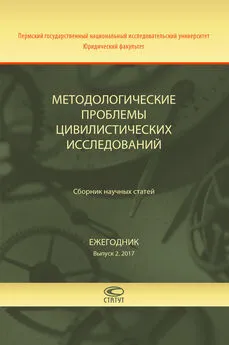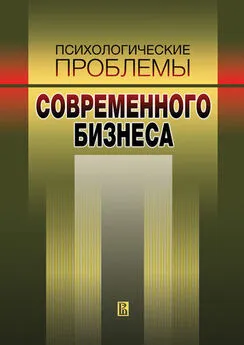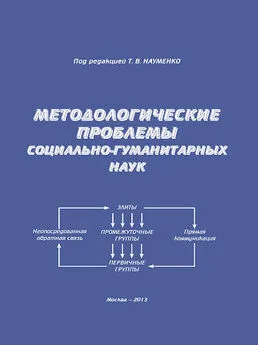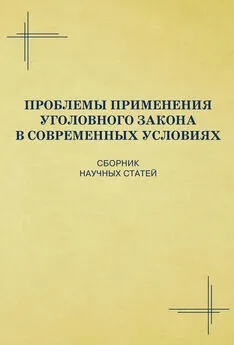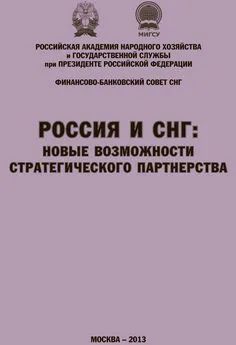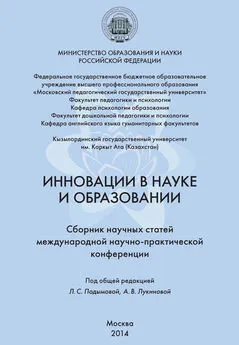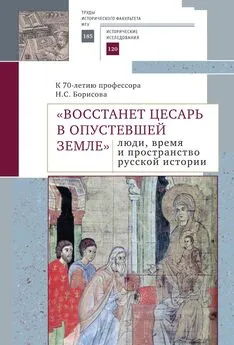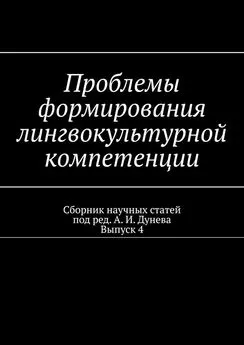Коллектив авторов - Методологические проблемы цивилистических исследований. Сборник научных статей. Ежегодник. Выпуск 2. 2017
- Название:Методологические проблемы цивилистических исследований. Сборник научных статей. Ежегодник. Выпуск 2. 2017
- Автор:
- Жанр:
- Издательство:неизвестно
- Год:неизвестен
- ISBN:978-5-8354-1309-6
- Рейтинг:
- Избранное:Добавить в избранное
-
Отзывы:
-
Ваша оценка:
Коллектив авторов - Методологические проблемы цивилистических исследований. Сборник научных статей. Ежегодник. Выпуск 2. 2017 краткое содержание
Издание предназначено для научных работников, докторантов, а также студентов магистратуры и аспирантов гражданско-правовых направлений подготовки.
Методологические проблемы цивилистических исследований. Сборник научных статей. Ежегодник. Выпуск 2. 2017 - читать онлайн бесплатно ознакомительный отрывок
Интервал:
Закладка:
In 2016, the Perm Reading on the Civil Methodology were held for the forth time. For the first time, we gathered on the Perm land in 2012, when Professor Mikhail Yurievich Chelyshev was alive. He was the person to introduce the idea of holding such events in Perm (Mikhail Yurievich worked together with the Business Law, Civil and Arbitration Procedure Chair of the Perm State University, was the Chair Professor). Like in all the previous years, our event was dedicated to the memory of Mikhail Yurievich – a friend of ours, our colleague, a famous civil scientist, a teacher, the popularizer and the organizer of deep civil researches, who made a prominent contribution to the development of the methodological aspects of the civil science.
Our mutual idea is alive and developing. In 2015, the event got a status of the satellite project of the Perm Congress of the Law Scientists, since 2015 the “Statut” publishing house is a permanent partner of our scientific platform.
Starting from this year, the Perm Reading on the Methodological problems of the Civil Researches are organized jointly with the Kazan (Privolzhsky) Federal University, where Mikhail Yurievich was the Head of the Civil and Business Law Chair.
All that allowed to reach the desired purpose: to develop the project, to try to bring the results of the performed scientific discussion to the wide range of the juridical community, and what is more important – to involve prominent, unindifferent, interested people to the project realization – our colleagues, who enthusiastically supported the started dispute on the methodological problems. This, beyond all doubt, has a permanent importance for the development of science in general and the civil science in particular.
The scientific results of the first, the second and the third readings held correspondingly in 2013, 2014, 2015, were published in magazine “Perm University Herald. Juridical Sciences” (2013. # 4; 2014. # 4; 2015. # 3 (http:// www.jurvestnik.psu.ru)).
The principal purpose of the organizers and the partners of the Perm readings, and of the publishers of this book – is intensifying the interest for the civil methodological problematics, especially on the part of the young researchers and postgraduates seeking for the scientific degrees. We totally share the opinion that “a person not armoured methodologically, proceeds by trial and error” 18 18 Ushakov A.A. General Notion of Methodology // Methodology of Soviet Legal Science: Inter-University Collection of Scientific Works. Sverdlovsk, 1978. Issue 70. P. 27.
. Observation of the methodological principles in civil researches can structure the scientific activity, lead to gaining the best scientific result using the minimum amount of means.
R. Jhering called such an observation the “law of economy” and saw “one of the life laws of any jurisprudence” in it: “The jurisprudence that has not understood this law, i.e. the jurisprudence that is not capable of economic treatment of the material, will be pressed with the growing mass of the latter and will die of its own richness” 19 19 Jhering R. von. Legal Engineering / Content by A.V. Polyakov. M.: Statut, 2008. P. 38.
. The most important task of the of the methodologists of the civil science is to avoid its destruction by the tons of the graphomaniac preudoscientific literature, the authors of which do not fully understand what they study, how they study, what they study it for, and in which aspect they study it.
Any science needs self-reflection, the development of knowledge about itself. The continuation of the investigation performed in the Soviet period by the O.S. Ioffe on the logics of the civil law thinking 20 20 Ioffe O.S. Development of the Civil Thought in the USSR: in two volumes. L.: Тhe Publishing House of the Leningrad University, 1975 (part 1), 1978 (part 2).
development would be extremely useful for the civil science studies. Such a work based on the post-Soviet civil law material is of great interest and can show the directions of the further research. This is because the scientist looks at the researched phenomenon through the prism of the scientific knowledge existing at the present moment.
Every meaningful, productive research of the legal phenomena, including those of the civil law character, should start with establishing the methodological principles and frames of work. That is why, the researches should first of all be taught to use different methods of cognition and be equipped with the methodological tools.
The question about what the scientific methodology is, is a complicated question not only for the civilians but also for the methodologists of the science, for the philosophers and the theorists of the law. But the general scientific complexity of the problem should not lead to avoiding it in the specific sciences.
At present, the situation is created in the sphere of the civil law researches, when the methodology, in a manner of speaking, “takes a revenge” over the civil science: the full ignoring of the methodological aspects of the scientific research, the lack of understanding of the essence and the meaning of the methodology, the failure to use the system of the general and the specific scientific cognition methods leads to the diluting the very core of the science, to the intensive multiplication of the scientific “plankton”, to the research of the civil “chimeras” instead of the really existing problems. N.A. Vlasenko rightly characterized the state of the modern scientific thought as the “circulation of the muddy water” 21 21 Vlasenko N.A. About the Crisis Tendencies in Law // Juridical Techniques: Annual. # 8 “Democratization of the Law-Making: Doctrine, Practice. Technique”. Nizhniy Novgorod, 2014. P. 45.
. It is a pity this characteristic is applicable to many scientific researches being performed.
The methodology of the science is traditionally understood as a complex of the scientific cognition methods. Nevertheless, as known, the entire is always bigger than a simple set of the components: a kit for making a plane – is not yet a plane itself.
The cognition methods separately are a specific part of the civil methodology, and the researcher should be familiar with each of them.
To begin with, the the excellence of a legal theorist is defined by his understanding of the special, specific (general legal) methods of cognition and his ability to use them. For example, the usage of the historical legal method – is not the interpretation of the contents of the normative acts, that regulated in the past the researched phenomenon, and not the retrospective of the scientists’ opinions about it. Similarly, the use of the comparative legal method is not the re-writing the articles, covering the researched phenomenon, from the legislations of the foreign countries. Such application of the mentioned research method is very often met in the civil scientific works.
It is a pity that the civil scientists seldom use the methods of the nonjuridical sciences (economy, sociology, cultural studies, psychology, mathematics), which significantly enlarge the opportunities of the research. An especially promising and in some researches – a necessary method is the economic analysis and the sociological analysis of the civil law concerning how the civil legal phenomenon under study influences the economics and the society and vice versa. For example, if the recently implemented institution of the personal bankruptcy is needed in the specific economic relations, if it has led to the expected economical result, i.e. the significant reduction of debt to the creditors? Using the sociological methods, one can discover how the addressees of this institution treat it: if the risk of bankruptcy is a real factor inducing to pay the debt, or if it, on the contrary, is a happy opportunity to get rid of the creditors’ claims? In the latter case, the eficiency of the civil legal regulation of the personal bankruptcy will be extremely low, in the worst case scenario – the regulation will be not needed, and this cannot be ignored by the researcher.
It is quite often that the civil works include the innovative proposals that require considerable financial resources which are totally not taken into attention by the researchers. For example, the thesis researches propose to develop the mechanisms of compensating the civil damage for the deceived participants of the co-funded construction project, for the crime victims and the victims of other offences, for consumers, for the investors of the bankrupt financial organizations, for the authors of illegally used creative works, and other persons at the expense of the national budget. The economic analysis 22 22 Habrieva T.Y. Economic Legal Analysis: the Methodological Approach // Magazine of the Russian Law. 2010. # 12. P. 5–26.
of such statements about the novelty of the research is a mandatory condition for their verification.
In some of the civil researches it will be relevant to use the methodological toolbox of the cultural and psychological sciences allowing to account for the corresponding special features of the society. For example, when using exceptionally the legal methodology, the juridical construction of the relations between the borrower and the microfinance organizations look practically “trouble-free”: the organization gives the citizen a definite amount of money for his immediate needs, although at high interest rates but with no deposit. The problems of this construction are revealed when this construction is transferred to the society with the known cultural and psychological features. The borrowers are usually people not only with low income but also having low general and legal culture, with low capacity for the legal reflection and self-regulation. They inadequately evaluate their possibilities, with all the resulting civil consequences and, it is a pity, with harsh criminal consequences. The ignoring of this factors devaluates the civil legal construction of “microloans” and leads to the justified blaming the lawyers for their failure to “study the life of the society and the state, the functioning of the law within the framework of their actual purpose in the life of people and the society” 23 23 Nepreenko A.A. Meaning and Form of Teaching the Jurisprudence Methodology // State and Law: Issues of Methodology, Theory and the Practice of Functioning: Collection of Scientific Articles / Ed. by A.A. Nepreenko. Samara: Samara University Publishing House, 2006. Issue 2. P. 9.
.
Surely, none of the scientific researches can be made with no general scientific methods of cognition (analysis, synthesis, deduction, induction comparison, analogy etc.). Although, in opinion of B.I. Puginskiy, the mentioned means “are not the methods of getting the scientific knowledge but are the general logical rules of performing the intellectual operations” 24 24 Puginskiy B.I. Methodological Aspects of Jurisprudence // Jurisprudence. 2010. # 1. P. 9.
, their research potential should not be underestimated. These means provide for a formal rightness of the statements, but not always for their verity of course.
In general, the relevant and effective application of the scientific cognition methods supposes the deep understanding of their nature, purpose, functions, rules and cases of use by the researcher.
In our opinion, the authors of the civil works, especially the authors of the theses, should describe the chosen methodology of the research at the level of the paragraph, chapter, section. The standard list of the research methods being repeated in every thesis, is not suficient for explaining the chosen methodology and the methods of cognition. It is necessary to describe distinctly and in detail, what method was used, the reason and the purpose for choosing it to get a definite scientific result.
Читать дальшеИнтервал:
Закладка:
